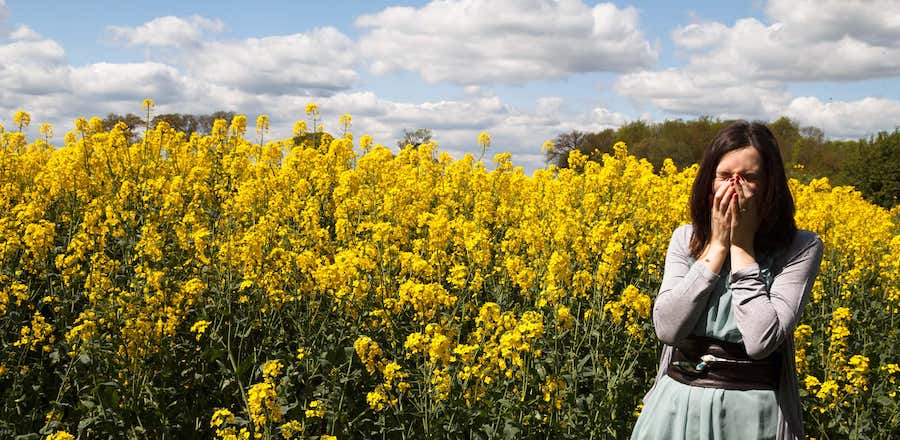7 hay fever hacks to ease your symptoms this summer
Desperate to find hay fever solutions?
According to health officials, people sought advice for hay fever symptoms once every three seconds on Sunday. And today, the Met Office predicted the pollen count would be “very high” in most of England and Wales.
Hay fever is usually at its worst between March and September – and right now, thousands of people affected are desperate for a solution to their pollen-induced runny noses, itchy eyes and tickly coughs, and other irritating symptoms.
The hay fever pages on the NHS.uk website reportedly received 122,650 visits last week alone.
Over 122,000 people visited the NHS website for #HayFever advice last week.
The pollen count is still high – find out what you can do to ease your hay fever symptoms
➡️ https://t.co/DS6tzrILRN pic.twitter.com/llSwu4dRVM
— NHS (@NHSuk) June 13, 2023
So, what can you do to help with hay fever symptoms?
1. Don’t rub your eyes
“Red, itchy, swollen eyes are often a real problem for hay fever sufferers,” explained pharmacist Sid Dajani, from Golden Eye Eye Care.
“As tempting as it is, don’t rub your eyes. Clean them free of pollen frequently, with cotton lint and cold water, and treat the symptoms immediately with eye drops or eye ointment containing propamidine isetionate.”
2. Don sunnies and keep your clothes clean
Reducing your exposure to pollen, however possible, can really help. Dajani added: “Wear wrap-around sunglasses to protect your eyes when outside, and have a shower when you get in from work and put your clothes straight in the wash to help remove all pollen. It’s also best to avoid drying clothes outside.”
3. Think about your diet

An anti-inflammatory diet could help too
What you eat may have an impact too. GP Dr Nisa Aslam suggested: “Stick to an anti-inflammatory diet, with plenty of fruit and vegetables, beans, grains and oily fish, whilst limiting processed food high in fat, sugar and salt. Look for anti-inflammatory, antioxidant herbs, like chamomile, ginger, nettle and turmeric. These can be consumed in the form of supplements or beverages.”
4. Protect your nostrils
Dr Adam Fox, allergist and advisor to Clarityn, said: “Pollen balms such as petroleum jelly rubbed around the rim of the nostrils can help trap pollen before it enters the nose, and salt water nasal sprays help rinse pollen particles out of the nose, preventing them from sitting in there and causing more symptoms.”
5. Keep the windows shut

Keep windows closed
As tempting as it may be to fling windows open at this time of year, Dijani said: “Keep windows, including car windows, and doors shut. Venture out as little as possible. Towns and cities are no more friendly to hay fever sufferers than the countryside, due in part to more extensive ‘greening’ of urban areas.”
6. Prepare for the pollen count
Checking to see when the pollen is particularly high can help you prepare. “If you know you have symptoms every year, then it makes sense to be prepared in advance,” said Fox. “If you require a nasal spray, then starting to use it before the season starts will make it much more effective. For adults, these can be brought over the counter, whilst children will need a prescription.”
7. Stay in when the count is really high
And if symptoms are still really getting to you? “Avoid going outside when the pollen count is at its highest – in the middle of the morning or the early evening,” said Dajani.
The Press Association
Latest posts by The Press Association (see all)
- William and Kate celebrate 13th wedding anniversary - April 29, 2024
- Dame Kelly Holmes: ‘Getting old is a privilege but ageing I don’t like’ - April 27, 2024
- 9 of the most iconic dance scenes in movies - April 27, 2024
- Why is melanoma on the rise? As new personalised ‘gamechanger’ skin cancer jab is tested - April 27, 2024
- King to resume public duties after positive cancer treatment - April 26, 2024





















